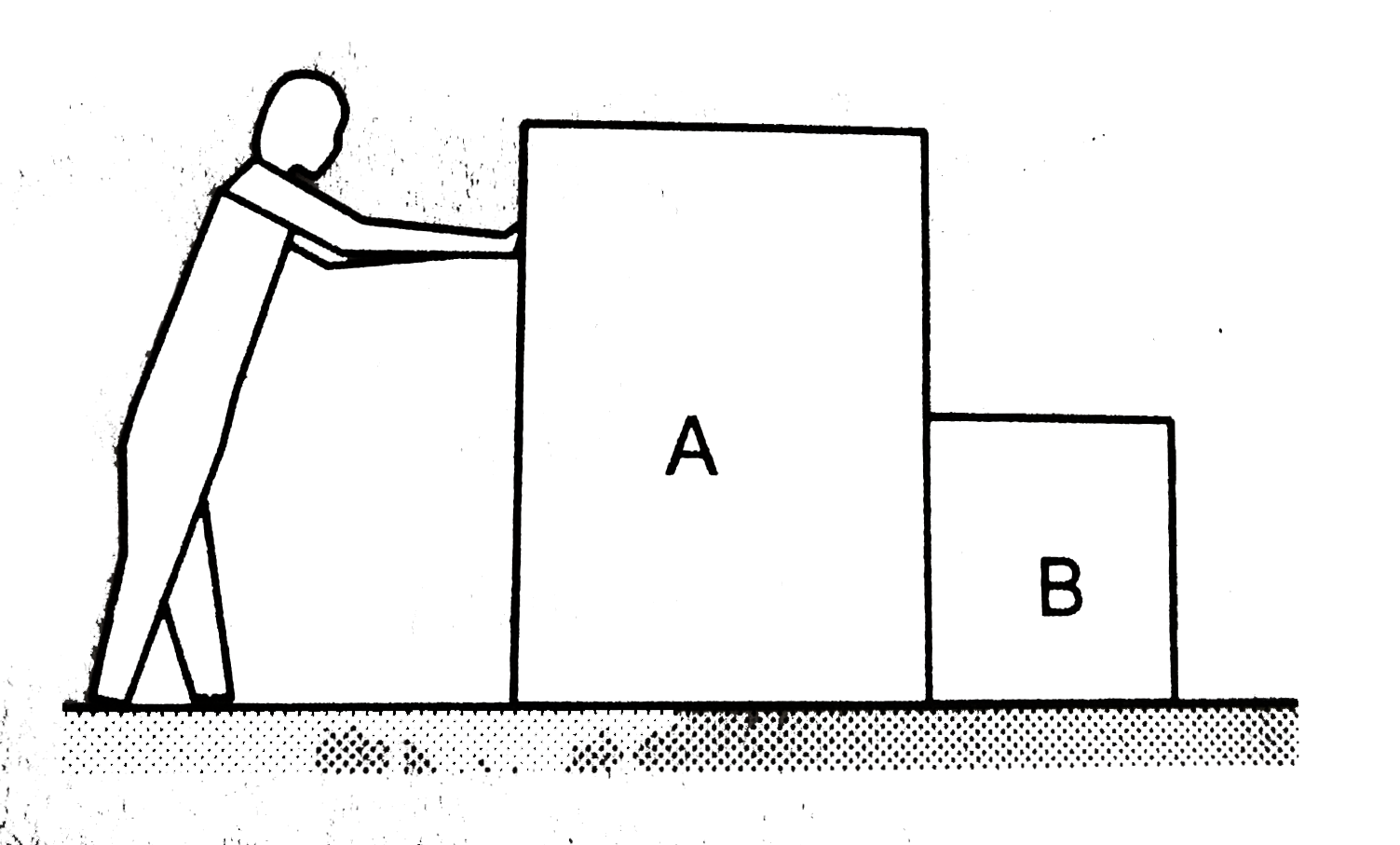If the sum of all the forces acting on a body is zero, is it necessarily in equilibrium ? If the sum of all the forces on a particle is zero, is it necessarily in equilibrium?
To solve the question, we need to analyze the conditions for equilibrium in both cases: for a body and for a particle.
1. Understanding Equilibrium:
- Equilibrium occurs when the net force and net torque acting on an object are both zero. There are two types of equilibrium: translational and rotational.
2. Case of a Body:
- When the sum of all forces acting on a body is zero, it implies that the body is in translational equilibrium. However, this does not guarantee rotational equilibrium.
- Example: Consider two equal and opposite forces acting on a rigid body, but they are not aligned (i.e., they are applied at different points). While the net force is zero, the body will experience a torque due to the distance between the lines of action of the forces, causing it to rotate.
3. Conclusion for a Body:
- Therefore, if the sum of all forces acting on a body is zero, it is not necessarily in complete equilibrium because it may still rotate due to the torque generated by non-aligned forces.
4. Case of a Particle:
- For a particle, if the sum of all forces is zero, the particle will remain in equilibrium. This is because a particle has no dimensions, and thus, any forces acting on it will either cancel each other out or not create any torque since there is no distance to create a moment arm.
- Therefore, if the net force on a particle is zero, it will not rotate or translate; it will remain at rest or continue moving at a constant velocity.
5. Conclusion for a Particle:
- Thus, if the sum of all forces on a particle is zero, it is necessarily in equilibrium.
Final Answer:
- For a body: No, it is not necessarily in equilibrium if the sum of all forces is zero.
- For a particle: Yes, it is necessarily in equilibrium if the sum of all forces is zero.
- Equilibrium occurs when the net force and net torque acting on an object are both zero. There are two types of equilibrium: translational and rotational.
- When the sum of all forces acting on a body is zero, it implies that the body is in translational equilibrium. However, this does not guarantee rotational equilibrium.
- Example: Consider two equal and opposite forces acting on a rigid body, but they are not aligned (i.e., they are applied at different points). While the net force is zero, the body will experience a torque due to the distance between the lines of action of the forces, causing it to rotate.
- Therefore, if the sum of all forces acting on a body is zero, it is not necessarily in complete equilibrium because it may still rotate due to the torque generated by non-aligned forces.
- For a particle, if the sum of all forces is zero, the particle will remain in equilibrium. This is because a particle has no dimensions, and thus, any forces acting on it will either cancel each other out or not create any torque since there is no distance to create a moment arm.
- Therefore, if the net force on a particle is zero, it will not rotate or translate; it will remain at rest or continue moving at a constant velocity.
- Thus, if the sum of all forces on a particle is zero, it is necessarily in equilibrium.
- For a body: No, it is not necessarily in equilibrium if the sum of all forces is zero.
- For a particle: Yes, it is necessarily in equilibrium if the sum of all forces is zero.
Topper's Solved these Questions
- ROTATIONAL MECHANICSBOOK - HC VERMA ENGLISHCHAPTER - ROTATIONAL MECHANICSEXERCISE - Exercises
86 Videos
- REST AND MOTION : KINEMATICSBOOK - HC VERMA ENGLISHCHAPTER - REST AND MOTION : KINEMATICSEXERCISE - Question for short Answer
13 Videos
- SIMPLE HARMONIC MOTIONBOOK - HC VERMA ENGLISHCHAPTER - SIMPLE HARMONIC MOTIONEXERCISE - Question for short Answer
15 Videos
Similar Questions
Knowledge Check
Can a couple pair of forces keep the body in equilibrium?
AYesBNoCdata is not givenDNone of the above
If the resultant torque of all the forces acting on a body is zero about a point is it necessary that it will be zero about any other point?
View SolutionFour forces acting on a particle keep it in equilibrium, then :-
View SolutionIf net external force acting on the system is zero then
View SolutionThree forces are acting on a body to make it in equilibrium , which set can not do it ?
View SolutionFour forces act on a point object. The object will be in equilibrium, if
View SolutionThe net force acting is not zero on
View SolutionIn Which of the following cases the net force acting on the body is not zero ?
View Solution

